Meet New Profit’s 2023 Unlocked Futures Cohort
March 23, 2023New Profit is pleased to introduce the nine outstanding social entrepreneurs that lead the eight organizations in our 2023 Unlocked Future Cohort.
Unlocked Futures launched in 2017 as a partnership between New Profit and John Legend’s FREEAMERICA with founding support from Bank of America, as part of the latter’s broader focus on removing barriers to success for vulnerable populations. The first cohort showed powerful progress, particularly in spreading the message of hope and humanity about returning citizens. This work was highlighted by a FREEAMERICA video campaign that garnered more than 1 million views for the entrepreneurs and their organizations.
Entrepreneurship is one of the most viable economic pathways for justice-impacted individuals to escape the recidivism cycle, live with dignity, and contribute positively to their communities. Additionally, individuals who have experience with the American legal system have unmatched expertise and insight into how we build alternatives to incarceration and improve the current system. Unlocked Futures aims to open the opportunity equation and remove barriers to entrepreneurship for these individuals.
The Unlocked Futures cohort model offers collaborative support to breakthrough social impact leaders and their organizations, creating value across several dimensions. This includes $100,000 in unrestricted support, a peer learning community, 1:1 adaptive leadership coaching, consultations with external content experts, and New Profit’s tested capacity-building framework and tools.
The 2023 Unlocked Futures Cohort includes:
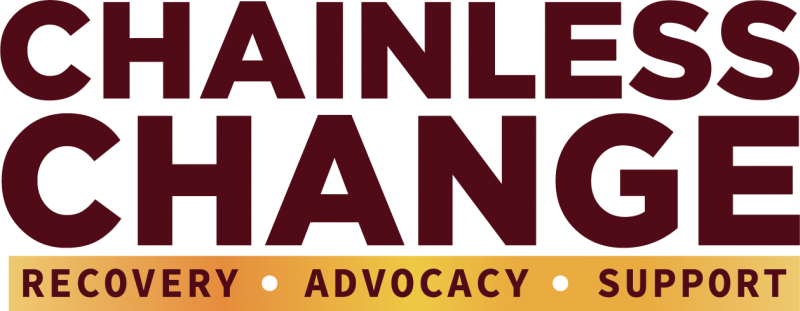 Chainless Change, E. Marq Mitchell: Deeply rooted in the value of lived experience, Chainless Change serves as a community of recovery, advocacy, and support for those who are impacted by the criminal legal system. Their programs are designed by and for justice-involved people with oppressed and marginalized identities. Chainless Change takes a two-pronged approach to addressing mass incarceration—supporting participants to heal from criminal legal system contact, while equipping them to engage in systems change efforts focused on incarceration alternatives, reentry resources, and policies that decriminalize socio-economic conditions.
Chainless Change, E. Marq Mitchell: Deeply rooted in the value of lived experience, Chainless Change serves as a community of recovery, advocacy, and support for those who are impacted by the criminal legal system. Their programs are designed by and for justice-involved people with oppressed and marginalized identities. Chainless Change takes a two-pronged approach to addressing mass incarceration—supporting participants to heal from criminal legal system contact, while equipping them to engage in systems change efforts focused on incarceration alternatives, reentry resources, and policies that decriminalize socio-economic conditions. Emergent Works (EW), Army Armstead: Emergent Works is working to undo the discriminatory impacts of the justice system, and the challenging realities often brought on by being justice affected by offering free high-value skills-based educational programs, re-entry support services that provide mentorship, resources, and a pathway to careers. EW also builds low code/no code tech solutions for organizations serving the movement to end mass incarceration. This extends to not only tech training and digital skill development but overall digital literacy to ensure familiarity and comfort with the wide range of tools available, preparing them to shift into a career horizon with radically amplified earning potential to decrease the digital divide and racial wealth gap. Through EW’s programs and products, they aim to create a world where there is equitable economic mobility for Black and Brown communities impacted by mass incarceration. The pipelines to mass incarceration will no longer have a sizable impact on these communities.
Emergent Works (EW), Army Armstead: Emergent Works is working to undo the discriminatory impacts of the justice system, and the challenging realities often brought on by being justice affected by offering free high-value skills-based educational programs, re-entry support services that provide mentorship, resources, and a pathway to careers. EW also builds low code/no code tech solutions for organizations serving the movement to end mass incarceration. This extends to not only tech training and digital skill development but overall digital literacy to ensure familiarity and comfort with the wide range of tools available, preparing them to shift into a career horizon with radically amplified earning potential to decrease the digital divide and racial wealth gap. Through EW’s programs and products, they aim to create a world where there is equitable economic mobility for Black and Brown communities impacted by mass incarceration. The pipelines to mass incarceration will no longer have a sizable impact on these communities. Good Call, Jelani Anglin and Kim Belizaire: Good Call’s mission is to empower communities of color and create systemic transformation by using technology and community organizing to provide immediate access to legal support. By providing access to immediate legal representation, individuals are given a chance to prevent lifelong consequences for wrongful charges. By transforming the arrest process, Good Call advocates to make early legal intervention a standard process in NYC and beyond.
Good Call, Jelani Anglin and Kim Belizaire: Good Call’s mission is to empower communities of color and create systemic transformation by using technology and community organizing to provide immediate access to legal support. By providing access to immediate legal representation, individuals are given a chance to prevent lifelong consequences for wrongful charges. By transforming the arrest process, Good Call advocates to make early legal intervention a standard process in NYC and beyond.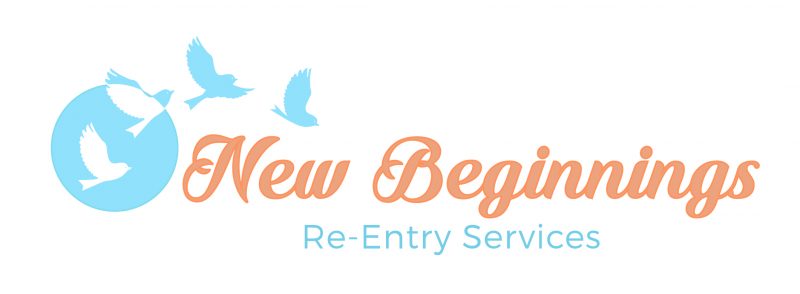 New Beginnings Reentry Services (NBRS), Stacey Borden: NBRS’s mission is to work to reduce recidivism by advocating for and providing services to women who are reentering local neighborhoods and communities. NBRS works to build alliances, collaborations, and networks to create positive changes in policies that negatively impact women involved in the criminal justice system. They envision a state, a world where communities can thrive with their sisters, daughters, mothers, and grandmothers coming from an unproductive environment to become whole and work toward self-sustainability. NBRS prioritizes the health and well-being of team members and the people they serve so they can have the greatest impact on the community. This consists of creating an atmosphere full of art therapy: paint nights, vision boards, storytelling, and playback theater. NBRS wishes to empower formerly incarcerated women. They believe in healing from trauma and harm that the women endured prior to their prison sentences, during their prison sentences, and mostly after release to parole, probation, or women who finish their sentences reintegrating back into families and communities.
New Beginnings Reentry Services (NBRS), Stacey Borden: NBRS’s mission is to work to reduce recidivism by advocating for and providing services to women who are reentering local neighborhoods and communities. NBRS works to build alliances, collaborations, and networks to create positive changes in policies that negatively impact women involved in the criminal justice system. They envision a state, a world where communities can thrive with their sisters, daughters, mothers, and grandmothers coming from an unproductive environment to become whole and work toward self-sustainability. NBRS prioritizes the health and well-being of team members and the people they serve so they can have the greatest impact on the community. This consists of creating an atmosphere full of art therapy: paint nights, vision boards, storytelling, and playback theater. NBRS wishes to empower formerly incarcerated women. They believe in healing from trauma and harm that the women endured prior to their prison sentences, during their prison sentences, and mostly after release to parole, probation, or women who finish their sentences reintegrating back into families and communities.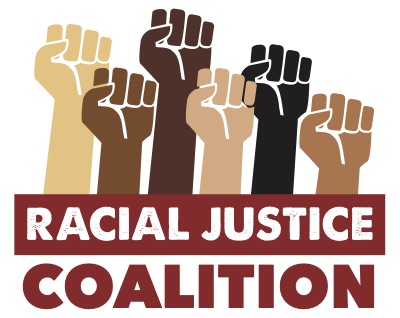 Racial Justice Coalition (RJC), Rob Thomas: The Racial Justice Coalition is a broad-based alliance of individuals and organizations committed to addressing systemic racism and state-sanctioned violence against Black people and those most impacted by poverty, criminalization, and mass incarceration. Through grassroots-led organizing and community collaborations, the RJC seeks to achieve and sustain deep equity by building power to those historically underrepresented, dismantling policies and institutions that uphold racism, and reimagining a community where justice exists for all people.
Racial Justice Coalition (RJC), Rob Thomas: The Racial Justice Coalition is a broad-based alliance of individuals and organizations committed to addressing systemic racism and state-sanctioned violence against Black people and those most impacted by poverty, criminalization, and mass incarceration. Through grassroots-led organizing and community collaborations, the RJC seeks to achieve and sustain deep equity by building power to those historically underrepresented, dismantling policies and institutions that uphold racism, and reimagining a community where justice exists for all people.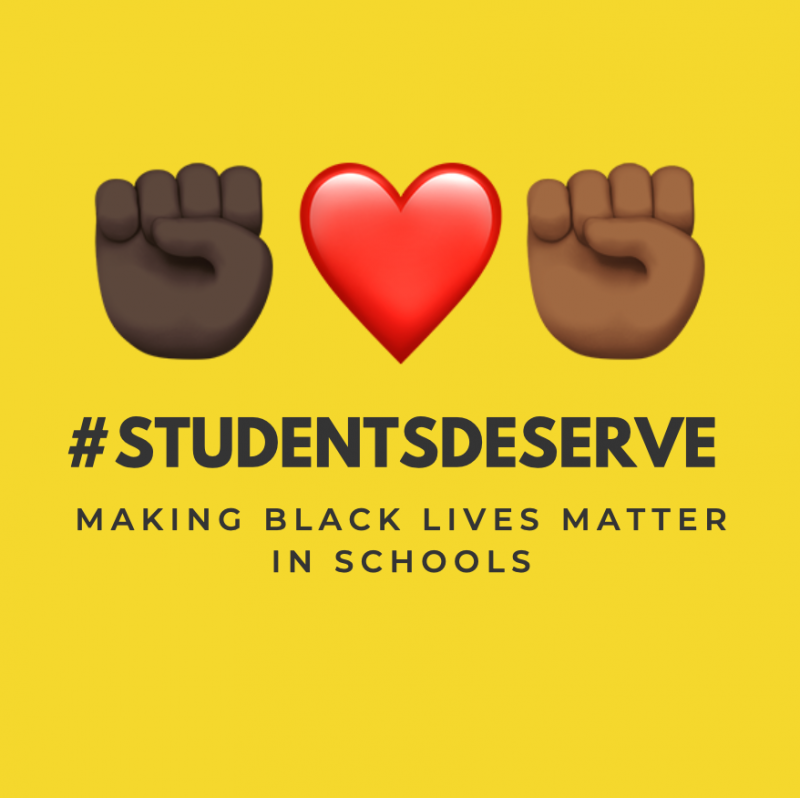 Students Deserve, Joseph Williams: Students Deserve is a youth-led, intergenerational grassroots organization of students, parents, and educators working to end the school-to-prison pipeline in Los Angeles. Students Deserve is inspired by the Movement for Black Lives’ Invest-Divest platform and works in deep partnership with Black Lives Matter-Los Angeles. With an organizing focus on centering and empowering Black youth, Students Deserve has helped achieve major victories against the criminalization of youth and investments into vital resources that youth and families need and deserve.
Students Deserve, Joseph Williams: Students Deserve is a youth-led, intergenerational grassroots organization of students, parents, and educators working to end the school-to-prison pipeline in Los Angeles. Students Deserve is inspired by the Movement for Black Lives’ Invest-Divest platform and works in deep partnership with Black Lives Matter-Los Angeles. With an organizing focus on centering and empowering Black youth, Students Deserve has helped achieve major victories against the criminalization of youth and investments into vital resources that youth and families need and deserve. Unlocked Labs, Jessica Hicklin: Unlocked Labs is dedicated to building a better justice system from the inside out, training justice-impacted individuals in technology skills, and empowering and employing them in building technology to enable rehabilitation and decarceration. Founded by two formerly incarcerated software engineers who taught themselves how to code in prison the Unlocked Labs runs coding and technology skill development programs in prisons across the United States.
Unlocked Labs, Jessica Hicklin: Unlocked Labs is dedicated to building a better justice system from the inside out, training justice-impacted individuals in technology skills, and empowering and employing them in building technology to enable rehabilitation and decarceration. Founded by two formerly incarcerated software engineers who taught themselves how to code in prison the Unlocked Labs runs coding and technology skill development programs in prisons across the United States.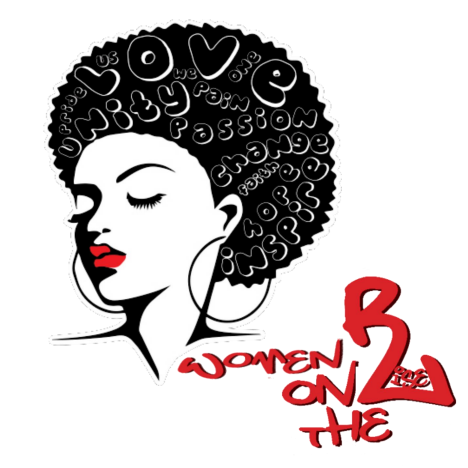 Women on the Rise (WoR), Robyn Hasan: WoR is a nonprofit organization led by women of color who have been impacted by the legal justice system. WoR works to educate, heal, and empower women and change laws that affect them.
Women on the Rise (WoR), Robyn Hasan: WoR is a nonprofit organization led by women of color who have been impacted by the legal justice system. WoR works to educate, heal, and empower women and change laws that affect them.
To date, Unlocked Futures has invested in 32 game-changing organizations led by visionary social entrepreneurs. You can read more about the creation of Unlocked Futures in this Fast Company piece.
About New Profit
New Profit is a venture philanthropy organization that backs social entrepreneurs who are advancing equity and opportunity in America. New Profit exists to build a bridge between these leaders and a community of philanthropists who are committed to catalyzing their impact. New Profit provides unrestricted grants and strategic support to a portfolio of organizations led by visionary social entrepreneurs to increase their impact, scale, and sustainability. It also partners with social entrepreneurs and other cross-sector leaders to shift how government and philanthropy pursue social change to ensure that all people can thrive. Since its founding in 1998, New Profit has invested over $350M in 200+ organizations and unlocked over $1.9B in government funding for social innovation through the America Forward Coalition’s collective advocacy efforts.